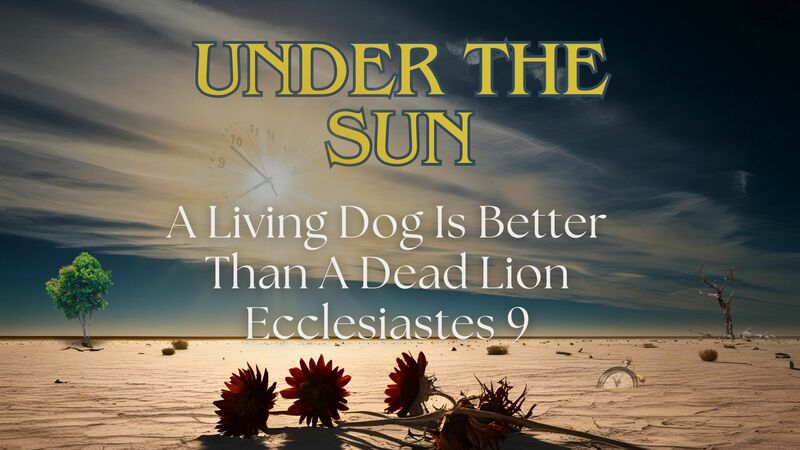
Ecclesiastes 9 explores the inevitability of death, the limitations of human wisdom, and the value of life despite its hardships. The sermon reflects on the universal fate of mortality, the fragility of goodness, and the hope found in Christ’s redemption.
- God’s Sovereignty and Human Uncertainty: All things, including human fate, are in God’s hands, yet humans cannot know what awaits them or whose favor God shows.
- Universal Fate of Death: Death comes to all regardless of status or deeds, and life is filled with evil and toil, making life barely preferable to death.
- Value of Life Despite Mortality: It is better to be alive, even as a lowly person, than to be a dead hero, since the living have awareness and opportunity.
- Enjoy Life Under the Sun: The Teacher recommends enjoying life and making the most of the present despite life’s hardships.
- Unpredictability of Time and Chance: Preparations and expectations can be undermined by unforeseen events and fate, illustrating life’s uncertainty.
- Futility of Wisdom in a Fallen World: A story illustrates that wisdom, while superior, may be futile and ineffective when faced with injustice and misfortune.
- Wisdom’s Superiority and Goodness’ Fragility: Wisdom is valuable but goodness is delicate and can be easily undermined by disrespect and foolishness.
- Hope in Christ’s Redemption: Unlike Qoheleth’s perspective, Christians know that through Jesus Christ, life conquers death, offering freedom from sin and eternal life. This provides a victorious hope beyond the bleakness of mortality.

